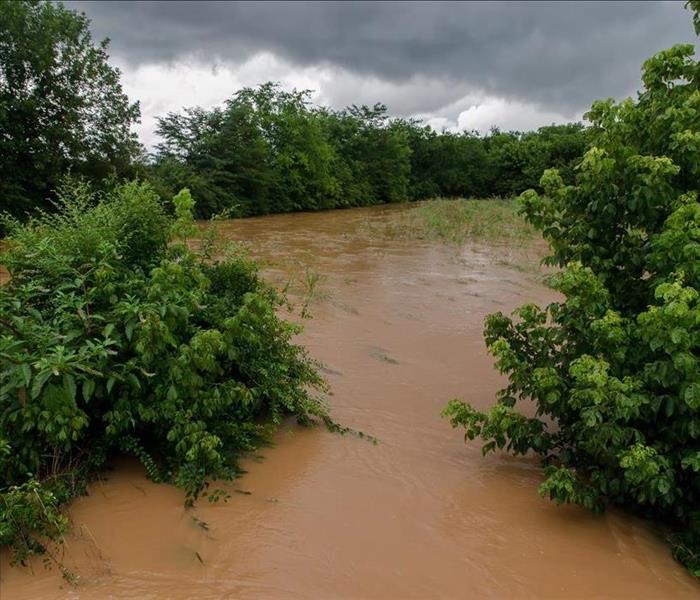Spring Flooding: How to Keep Your Home Dry and Safe | SERVPRO of Rhea, Sequatchie & Marion Counties
10/18/2024 (Permalink)
 Prepare for spring flooding! Contact SERVPRO for proactive flood protection and fast restoration after water damage.
Prepare for spring flooding! Contact SERVPRO for proactive flood protection and fast restoration after water damage.
As spring arrives in Tennessee, it brings the promise of blooming flowers and warmer weather. However, it also brings the risk of heavy rain and flooding, which can lead to significant damage to homes.
At SERVPRO of Rhea, Sequatchie & Marion Counties, we understand the challenges that come with spring flooding and the importance of proactive measures to keep your home dry. Here, we’ll discuss common causes of spring flooding and effective strategies to protect your property.
Understanding the Risks of Spring Flooding
Spring is often characterized by increased rainfall and rapid snowmelt, which can contribute to flooding in low-lying areas and along rivers and streams. The combination of saturated ground and heavy precipitation can overwhelm drainage systems, leading to water pooling around homes. Additionally, thunderstorms can bring intense downpours, further exacerbating the situation. Homeowners should be aware of their property’s flood risk, especially if they live near rivers or in flood-prone zones. Understanding these risks is the first step toward effective flood prevention.
Monitoring local weather forecasts is crucial, especially during spring months. Being aware of potential flood warnings allows you to take timely precautions to safeguard your home and belongings. Regularly checking the National Weather Service updates can help you stay informed about any approaching storms that may lead to flooding in your area.
Preventive Measures for Your Home
There are several proactive steps homeowners can take to reduce the risk of flooding. First, ensure that your gutters and downspouts are clean and functioning properly. Clogged gutters can lead to water overflow, which can pool around your foundation. Downspouts should direct water at least six feet away from your home’s foundation to prevent water seepage.
Landscaping plays a vital role in managing water flow around your property. Grading the soil away from your home can help divert rainwater and reduce the risk of flooding. Consider installing rain gardens or swales to absorb excess water and prevent runoff. Additionally, using permeable materials for driveways and walkways can help absorb rainwater and reduce surface runoff.
Another effective strategy is to invest in sump pumps or flood barriers for your basement. Sump pumps can help remove water if your home does experience flooding, while flood barriers can provide an extra layer of protection against rising waters.
What to Do If Flooding Occurs
Despite your best efforts, flooding can still occur. If you find yourself in this situation, it’s important to act quickly. First and foremost, ensure your safety and that of your family. Turn off electricity in flooded areas and avoid wading through standing water, as it may contain hazards. Document the damage for insurance purposes, taking photos of affected areas and belongings.
Once it is safe to do so, contact SERVPRO of Rhea, Sequatchie & Marion Counties for professional water extraction and restoration services. Our team is equipped to handle all aspects of flood damage, from removal to restoration, ensuring your home is returned to its pre-flood condition as quickly as possible.
Spring flooding can be a daunting challenge for homeowners, but with proper preparation and swift action, you can protect your property. At SERVPRO of Rhea, Sequatchie & Marion Counties, we’re here to support you in safeguarding your home against the impacts of spring storms.
Contact us today for more information on how we can help keep your home dry and secure. Your peace of mind is our priority.

 24/7 Emergency Service
24/7 Emergency Service